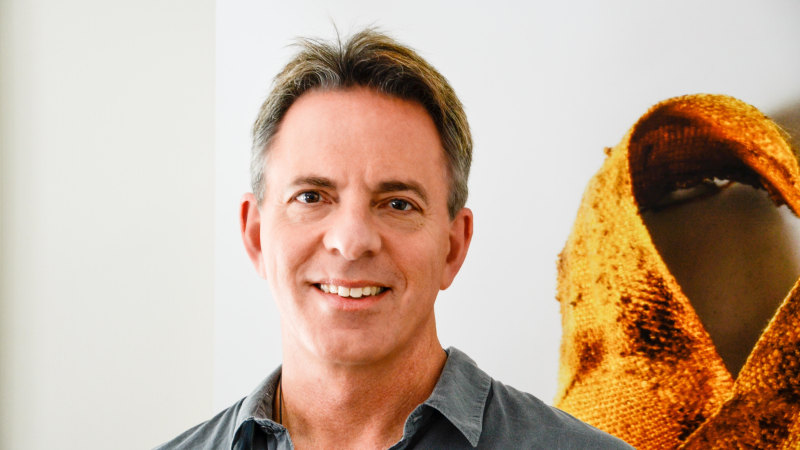
Why charities shouldn’t be ‘crucified’ for acting like corporates
October 24, 2023Save articles for later
Add articles to your saved list and come back to them any time.
If Australian charities were allowed to be run more like other businesses they would likely raise more for the causes they support even if their costs were to rise, says prominent humanitarian activist and author Dan Pallotta.
The sector is timid about thinking big because of society’s expectations that charities should have low costs, but that approach can hobble the good they can do, Pallotta told this masthead.
Dan Pallotta, humanitarian activist and author, says societal expectations are hobbling fundraising for charitable causes.Credit: Ben Sklar
“If you think about it, the fund-raising function of the non-profit sector is really all we have in terms of strengthening civil society and getting people involved in the great causes of our time,” he says.
“The for-profit sector is chartered to get people to consume with the advertising it does, but we have prohibited non-profit organisations from investing and amplifying the good they do,” Pallotta says.
The American, whose TED Talk on philanthropy ‘The way we think about charity is dead wrong’ has been viewed more than five million times, will speak virtually at a summit hosted by Future Generation in Sydney on Thursday.
Pallotta says charities that spend more on growing – so long as they do it effectively – are far more likely to have an impact than those that starve themselves.
“They would act like for-profits if we allowed them to, but every time they do something remotely like a for-profit, we crucify them,” says Pallotta, who best-selling book Uncharitable has been made into a movie of the same name.
Jack Heath, the chief executive of Philanthropy Australia, who will also be speaking at the summit, says, in some cases, those costs will be higher than they should be, but “we cannot get away from the fact that [most] are not investing sufficiently in terms of the backbones of the organisations that are doing great work”.
The spotlight was recently shone on a charity that supports NSW volunteer firefighters for spending only 16 per cent of the $69 million raised since 2014 directly on Rural Fire Service members.
The NSW Rural Fire Service Association uses a for-profit telemarketer to help it raise money. Large, well established global charities typically spend more than 80 per cent of the money they raise on the causes they support.
“They would act like for-profits if we allowed them to, but every time they do something remotely like a for-profit, we crucify them,”
While tax-deductible donations have increased as a share of total income in Australia, the percentage of taxpayers making donations in Australia has fallen. Despite its wealth, Australia is behind most other rich countries in its charitable giving.
A report released in 2021 by Philanthropy Australia showed charitable giving, as a proportion of GDP, using the latest available data, sits around 0.8 per cent in Australia, compared to almost 1 per cent in the United Kingdom, 1.8 per cent in New Zealand and 2 per cent in the United States.
Figures from the latest report of the Australian Charities and Not-for-profits Commission shows the number of people who volunteer continues to trend down.
The Albanese government has tasked the Productivity Commission to review charitable giving with a view to doubling philanthropic giving by 2030. The final report will be provided to the government in the first half of 2024.
Future Generation is an initiative of Geoff Wilson, the founder of Wilson Asset Management. It operates two listed investment companies (LICs), whose shares are quoted on the Australian Securities Exchange.
Investors in the LICs get exposure to fund managers who waive their fees for managing the money. One per cent the assets of Future Generation’s LICs are invested each year in charities that support Australian children and youth at risk, with almost $80 million given to date.
Other speakers at the summit include high-profile businessman David Gonski, who is the patron of Raise Foundation, which supports teenagers in high schools. Gonski is also patron of the Australian Indigenous Education Foundation.
Fund managers who support the Future Generation initiative and will be speaking include, among others, David Allen of Plato Investment Management and David Paradice of Paradice Investment Management.
Registration to attend the free event, either in-person in Sydney or virtually can be made online here.
The Age and The Sydney Morning Herald are media partners of the Future Generation Summit.
- Advice given in this article is general in nature and is not intended to influence readers’ decisions about investing or financial products. They should always seek their own professional advice that takes into account their own personal circumstances before making any financial decisions.
Expert tips on how to save, invest and make the most of your money delivered to your inbox every Sunday. Sign up for our Real Money newsletter.
Most Viewed in Money
From our partners
Source: Read Full Article



